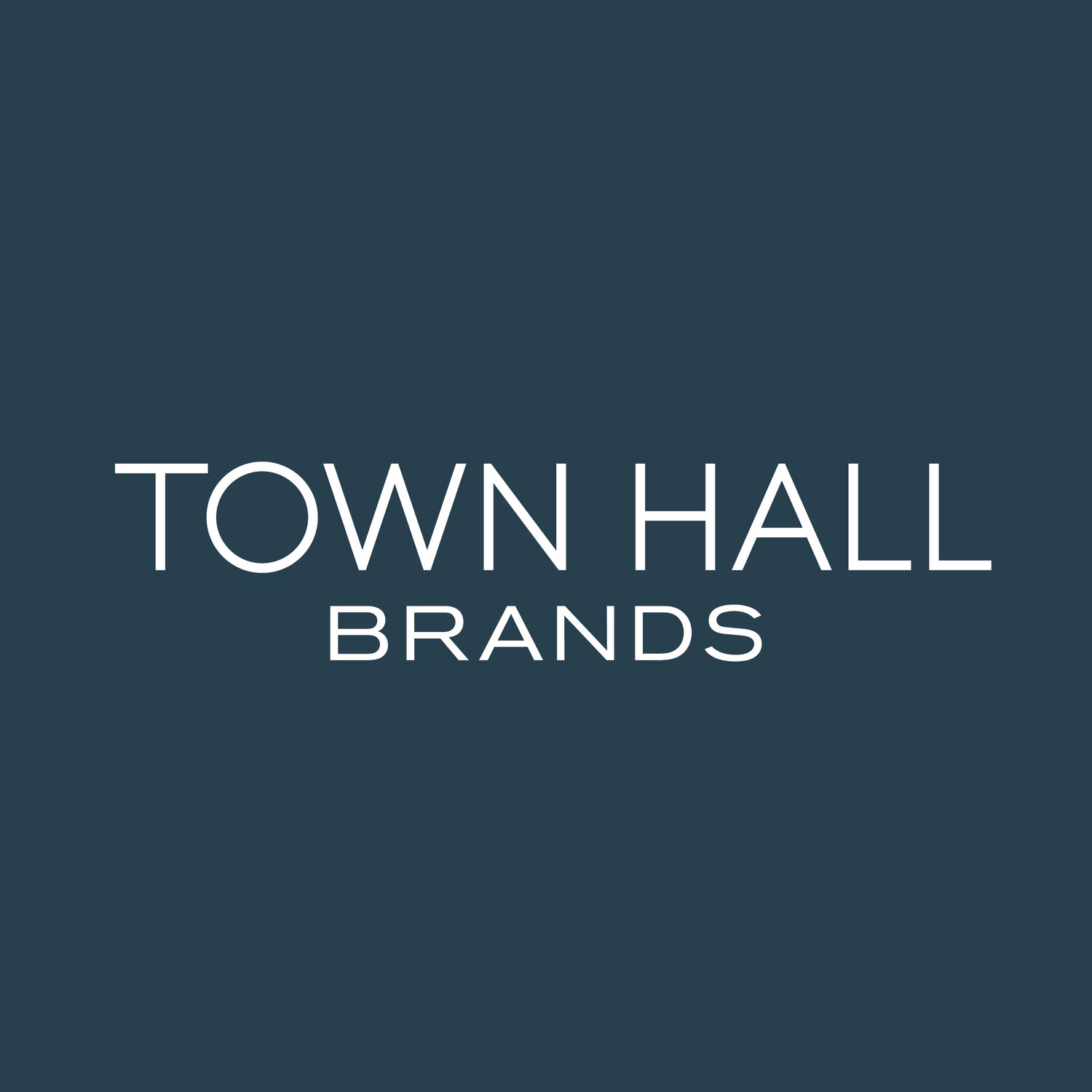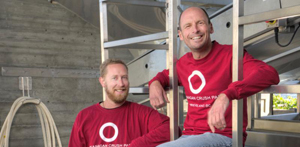We are proud to represent amazing wineries that take sustainability seriously. In honour of #EarthDay, here is how Blue Grouse Estate Winery in Duncan, BC is aiming to leave their property a better place than it was found for generations to come.
Meet Pedro Parra #withTownHall
By Leeann Froese Well its FriYAY - and a new week to bring you an amazing person #withTownHall!
If you are new to reading this blog or new to our company – we want you to know that we are proud that we have a big network, and we are continually meeting new and interesting personalities.
This week #withTownHall, we are rolling in on #featurefriday to introduce you to an international terroir specialist, Pedro Parra.
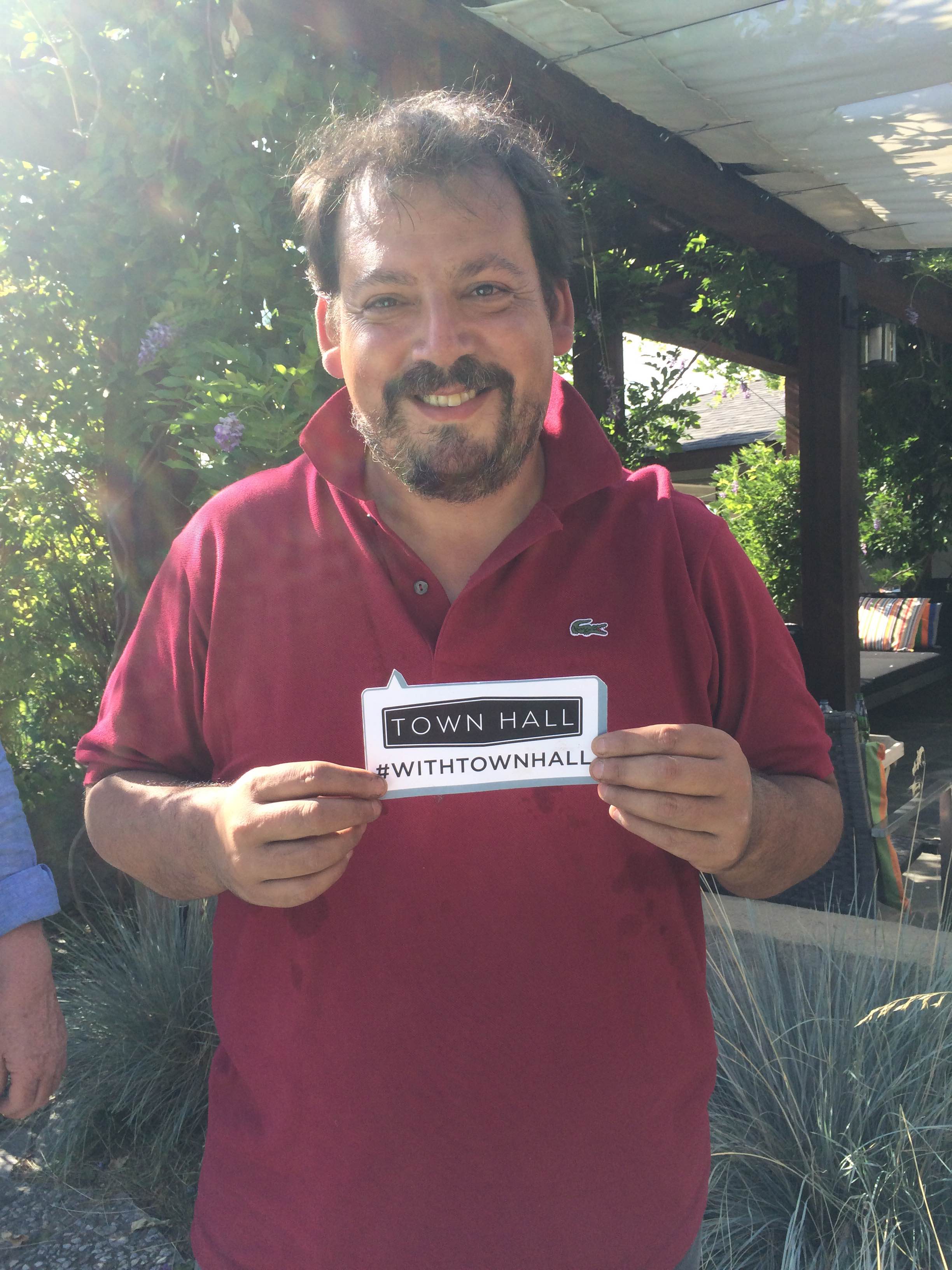 Pedro is a soil and terroir consultant from Chile. To keep it simple, he assesses vineyard soil and determines which grape varietals will grow best based on soil type and composition. This includes digging pits and truly understanding the soil since different soil types yield different results in finished wine.
Pedro is a soil and terroir consultant from Chile. To keep it simple, he assesses vineyard soil and determines which grape varietals will grow best based on soil type and composition. This includes digging pits and truly understanding the soil since different soil types yield different results in finished wine.
Pedro's clients are mainly located in Chile, Argentina, and Italy, but he also works in Sonoma, British Columbia, Armenia, Uruguay, and Burgundy.
In BC, Pedro works with three of Town Hall's PR clients. Beginning in 2012, he joined the Okanagan Crush Pad team as their terroir consultant and been apart of their journey ever since helping them continue to move forward in crafting pure Okanagan wines. In 2014, Pedro assessed the soil of Coolshanagh Vineyard and noted the vineyard's soil was in the top 15% in the world. Along with the vineyards in the Okanagan, Pedro consults with the Blue Grouse Estate Winery team in Cowichan Valley on their winemaking.
In this position, he has dug over 20,000 pits around the world to help winemakers create the best wine possible, because it's not about the soil-it's all about the wine. When Pedro chooses his wine he considers soil type & region over varietal.
With all that being said will you help us say hello to Pedro?
Leave a comment below – or go give this post a like or share on Facebook or Twitter
Why Not All Vegan Wines are Vegan
By Leeann Froese Recently we came across a question the question posed was whether a wine is also vegan. And so we thought this provided a great chance to discuss...
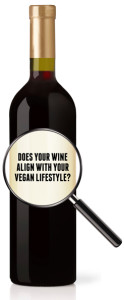 Most people might assume that all wine is vegan because, well, wine is made from grapes along with yeast to convert the sugars into alcohol. However, many wines are exposed to animal-derived products during production. It’s in the process called fining where the wine is clarified, by introducing a very small amount of protein to extract tiny bits of grape skin or stems, naturally occurring yeasts and various other particles. Typical fining agents are isinglass (fish bladder protein), albumen (egg white) and gelatin (animal protein). As the agent sinks down, the unwanted particles adhere to the agent.
Most people might assume that all wine is vegan because, well, wine is made from grapes along with yeast to convert the sugars into alcohol. However, many wines are exposed to animal-derived products during production. It’s in the process called fining where the wine is clarified, by introducing a very small amount of protein to extract tiny bits of grape skin or stems, naturally occurring yeasts and various other particles. Typical fining agents are isinglass (fish bladder protein), albumen (egg white) and gelatin (animal protein). As the agent sinks down, the unwanted particles adhere to the agent.
Fining makes wine clear and gives it a smooth texture. While none of the fining agents end up in the finished product sold in the bottle, some vegans deem wine that has undergone this process unfit to drink because the animal products have been used. On the flip side, some winemakers skip the fining process entirely or use alternative fining agents and allow nature to take its course. Bentonite clay, limestone and vegetable plaques are among some of the natural agents.
Now no one on our team is a winemaker, so if you, dear reader, have more knowledge than we do on the winemaking process, that would be no surprise. However another topic of vegan interest that our team has been discussing with clients and other wine lovers is the packaging.
We asked our own Andrew von Rosen, if a wine is vegan, can the package also be vegan? Andrew shares "even if a wine is vegan, it’s difficult to guarantee that a label aligns with veganism. First off," he says, "recycled paper can’t be considered vegan because it is unknown what the paper has touched (a harsh reality that stuns many tree-loving vegans – it's only vegan if you chop down a tree). Secondly," he continues, "on the back side of that label is glue – possibly an animal–based gelatin glue. Lastly," he adds, "while many inks are vegetable based – opposed to the petroleum based inks of a decades past – pigments that colour those inks may be made from insect or animal products."
So how would someone know if their wine is actually 'fully vegan'? There are a few resources online that list wineries and their wines that have been deemed vegan. See www.vegans.frommars.org/wine/ and www.barnivore.com for some examples.
Regrettably, most wine labels in Canada typically do not identify whether the wine is suitable for vegans or what fining products were used. Contacting a winery directly is a way to know if animal products were used in the winemaking, but it is very challenging to know if all aspects of the wine you’re buying including the label align with the vegan lifestyle.
More Concrete Tanks for Okanagan Crush Pad
PRESS RELEASE October 21, 2013 Media Contact: Leeann Froese | Town Hall - 604-321-3295
More Concrete Tanks for Okanagan Crush Pad
Old practice made new again bears wines 'Raised in Concrete'
Suggested Tweet: New concrete fermenters debute @okcrushpad, celebrating their 2nd birthday. http://bit.ly/OCPconcrete
The Story:
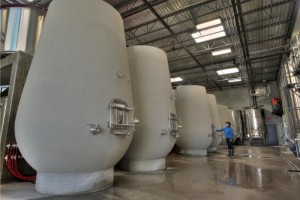
(Summerland, BC) Okanagan Crush Pad Winery (OCP) just celebrated its second birthday at the end of September. To celebrate, the winery received a very heavy package, just in time for 2013’s harvest.
Six 4,400-litre concrete tanks, weighing a total of 39 tons, arrived from Italy to join six 2,000-litre black egg-shaped concrete tanks that the winery purchased from a supplier in Sonoma in 2011.
The new tanks had a long journey, which started at the Nico Velo factory in Vicenza, Italy, before arriving at their ultimate resting point in Summerland, BC.
Nico Velo, established in 1943, makes all types of concrete prefabricated structures, from bridge columns to wine tanks, and offers first class workmanship.
The decision to purchase the concrete tanks from Nico Velo came at the urging of Okanagan Crush Pad’s consulting winemaker, Alberto Antonini, who uses the same tanks at his Poggiotondo winery in Tuscany, and is very impressed with the results. OCP winemakers Michael Bartier and Matt Dumayne concur with the idea of using concrete fermenters. Concrete had been used for centuries in winemaking, but was more or less abandoned with the arrival of stainless steel. These modern day concrete tanks take a forward- thinking approach to the old world practice.
“Okanagan Crush Pad is my first experience using concrete tanks, and I am very impressed with the results. We now have just over 38,000 litres in concrete tank capacity,” notes Dumayne. “They have excellent fermentation kinetics such as temperature retention. The conical shape of the tank moves the fermenting juice around in a vortex, which produces wines with enhanced depth, complexity and roundness of tannins. We have found that the resulting wines have a complexity and an enhanced creamy mineral character.”
To date, Okanagan Crush Pad has made and released several wines that were fermented and aged in concrete, including the 2011 and 2012 vintages of the Haywire Switchback Vineyard Pinot Gris and the recently-released and much anticipated 2011 Haywire Canyonview Vineyard Pinot Noir. These wines were made in Canada’s first temperature controlled egg-shaped concrete fermenters. Each wine that was created in concrete carries the “raised in concrete” trademark on the front label.
Okanagan Crush Pad Winery, located in Summerland, BC, is home to Haywire and Bartier Scholefield wines, and also makes wines for other BC vintners who are seeking to establish their own wineries. Haywire wines are directed by winery owners Christine Coletta and Steve Lornie, while Bartier Scholefield is a collaboration between OCP’s chief winemaker Michael Bartier and Scholefield family member David Scholefield. The winery team focuses on crafting natural wines that are pure expressions of the vineyards they were grown on. The winery is open seasonally June 1 to September 15 and by appointment off season. For more information, visit www.okanagancrushpad.com.
Okanagan Crush Pad is a place for collaboration; we want to talk to you! Tweet with us: @okcrushpad Join the conversation on Facebook: facebook.com/okcrushpad
